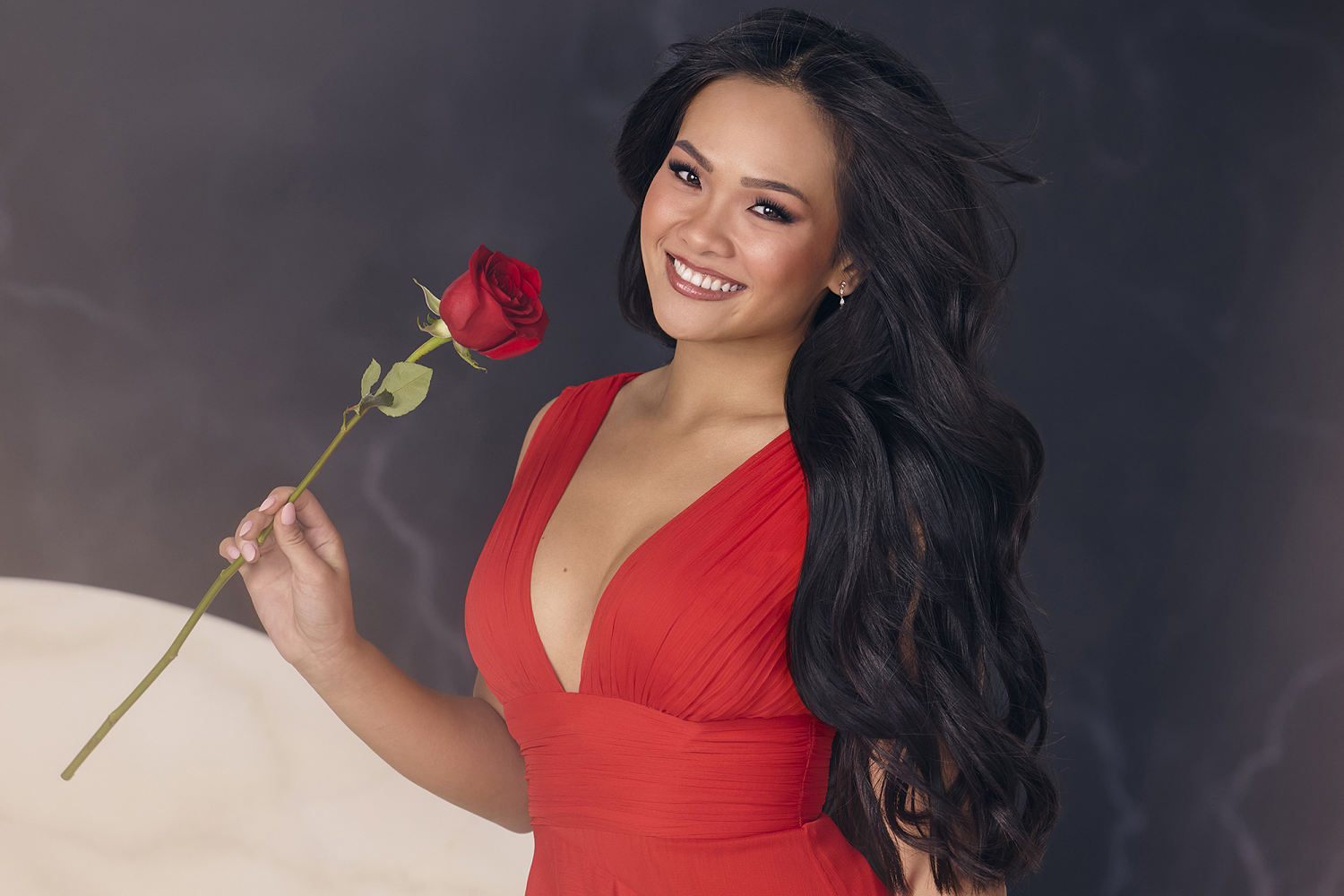
For Jenn Tran, the first Asian American star of “The Bachelorette,” Monday’s premiere felt “surreal” and emotional when she saw glimpses of her mother and her brother on screen.
“What really hit me was seeing my family on TV,” Tran, 26, said in an interview. “My Vietnamese culture is being present, and there’s Vietnamese food being mentioned. And then my mom speaks Vietnamese. … Things like that have always felt so close to me, but they’ve always only been in my home, so to have it on TV and normalized to have other people experience — I’m so excited for that.”
Tran, who is studying to be a physician’s assistant, was announced as the franchise lead in March after she was one of the final six contestants on the 28th season of “The Bachelor,” in which 32 women vied for the heart of Joey Graziadei.
This time around, 25 men — whose professions range from luxury event planner to retirement adviser — showed up for a shot at love with Tran. While most seasons begin at the Bachelorette mansion, the latest season kicked off at a different location, Hummingbird Nest Ranch in Southern California. She also announced a twist in the episode, telling the contestants they’d be heading to Australia.
Tran’s family shows up briefly in the premiere, doling out some words of advice and wishing her luck in her quest to find a match.
Tran, who hails from Hillsdale, New Jersey, said she watched the premiere in a bar in New York City’s East Village with several of her friends, many of whom booked flights from across the country to experience the night with her. Things quickly got interesting as fans got word that she was in the area, she said.
“I didn’t realize more people just started coming there, and then it was overwhelming to see so many people support me and just want to meet me,” Tran said. “To finally see it and see everyone’s reactions, what they thought was funny or what they thought was jaw-dropping, was a shocker.”
Her mother, Tran said, emerged as a huge hit among fans, which was particularly meaningful to her. She has been open in the past about the impact her Vietnamese immigrant mom, who largely took care of their family on her own, had on her. Tran said she was proud to see her mom speaking Vietnamese in the episode, giving viewers a chance to see authentic interactions and working to erase any shame or embarrassment that comes with speaking an Asian language.
“Growing up, you see how other people react when you speak a different language. They look at you weird. They’re afraid of it. … If my mom spoke to me in Vietnamese at the grocery store, I’d get a little bit embarrassed,” Tran said. “Being able to embrace my culture and having that kind of turning point and seeing it on TV, I was so excited. I don’t have an ounce of embarrassment about it anymore.”
While Tran set out to help change the landscape for Asian Americans in television, the “Bachelorette” and “Bachelor” franchises have been criticized for their handling of racism in the past. In the last season of “The Bachelor,” for example, contestant Rachel Nance, who is Asian and Black, was subject to a deluge of racist slurs, she told NBC News. Some fans called the show out for failing to properly address and condemn the language.
“We have reflected on it, and a big blind spot was not naming what it was: racism. That was another missed opportunity for us,” executive producer Claire Freeland said, according to the Los Angeles Times. “Our intention was to bring light toward what Rachel was going through. But we have to do better.”
Tran’s season was criticized for barely casting any contestants of Asian descent, as well.
“That’s on us. We didn’t do what we needed to do,” executive producer Bennett Graebner said of the criticisms. “Our hope is that they will see Jenn and realize this is a safe space. We’re not saying it will solve and fix everything. But it is a step.”
Tran said that she was similarly “disappointed” with the lack of Asian male representation but that she wasn’t involved in the casting decisions.
More on ‘The Bachelorette’
“All I can say is I hope that me being in the role that I am in today, that it’s going to lead to a lot more in that we are going to be properly represented in the future,” she said.
She also opened up about receiving racist comments similar to those Nance experienced, from being misidentified as other Asian Americans to being told to “Go back to Vietnam” or “Go to a sweatshop.”
“I’ll get comments like ‘Ching chong’ or something, just the craziest stuff that I am not exposed to in my everyday life. This is only because it’s social media and people can hide behind the screen,” Tran said. “I get comments saying that because I’m Asian, I have to pick an Asian person … or I get comments saying, ‘Oh, another Asian woman just being a white worshipper. She’s going to pick a white man.’”
But Tran said she’s not going to let the bigotry slide.
“I do want to share that kind of stuff on social media, because there are people who think racism doesn’t exist anymore or don’t really know the extent of it,” Tran said. “To just completely ignore it and not talk about it would be a disservice for the cause that I want to do, which is to make change.”






